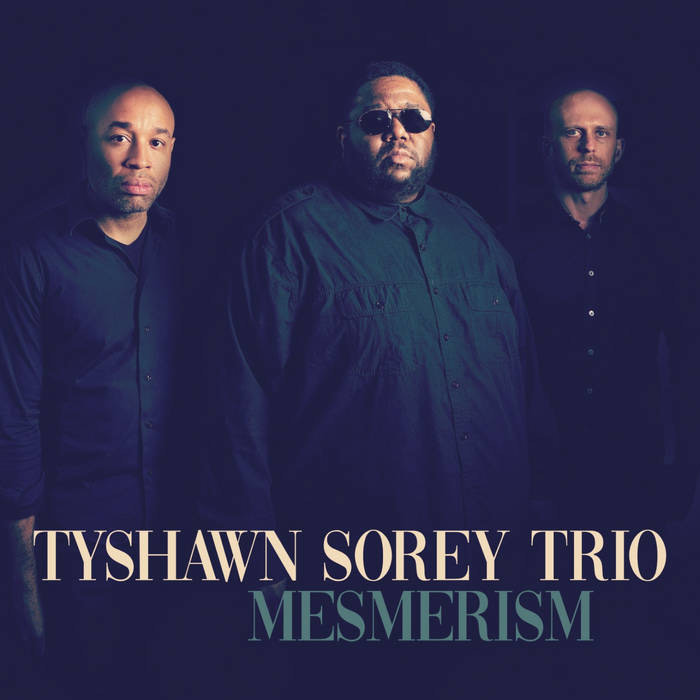Tyshawn Sorey Goes Deep into Jazz
The avant-garde experimental drummer-composer puts his stamp on standards
The drummer Tyshawn Sorey has made his mark mainly as an experimental musician, composer, and conductor—a McArthur Genius Grant winner who spans the gamut between contemporary classical and avant-garde jazz, with stints as sideman to the likes of Marilyn Crispell, Roscoe Mitchell, and Anthony Braxton. But lately he’s taken small steps toward the mainstream, playing in Vijay Iyer’s trio and now, with Mesmerism, leading his own trio on an album of standards. Except for “Autumn Leaves,” they’re not the most widely played standards—“Detour Ahead” (associated with Bill Evans), Horace Silver’s “Enchantment,” Paul Motian’s “From Time to Time,” and Muhal Richard Abrams’ “Two Over One”—but they’re covers of standards nonetheless.
The idea was suggested by one of his mentors, the legendary drummer Michael Carvin (audiophiles may recall his riveting 1996 solo album on Mapleshade, Drum Concerto at Dawn), and, though there’s little in Sorey’s discography to suggest it would amount to much, it does—in fact, it’s close to a masterpiece.
There is no ironic smirking going on here; Sorey treats the music with deep respect. But this isn’t a straight recital either; he knows there wouldn’t be much point in that. He pairs off with Aaron Diehl, one of the most elegant pianists around (with solid footing in jazz and classical as well), and their interplay reminds me of the 1980s Great Jazz Trio sets with Tommy Flanagan setting down majestic chords and Tony Williams klook-a-mopping polyrhythms. Sorey also reminds me of Paul Motian (a clear influence) playing a set at the Village Vanguard several years ago with Jason Moran and Chris Potter. At first hearing, Motian seemed to be off in a different universe; listen closely, though, and, clearly, he was the sun in the trio’s orbit, setting the pace, prodding the changes.
The album opening with the Silver piece, Diehl taking a graceful solo, then Sorey enters, swishing all over the trapset, it seems at first like a dissonant overlay, but, as it settles over us, it’s clear—as with Motian—that Sorey is calling the shots, and it’s the contrast between him and Diehl that gives this music its spark (though Diehl darts in and out of indigo blue notes too). Bassist Matt Brewer, another hybrid player, alters between riffing off Sorey, then off Diehl, then draping a shroud over both.
It’s a remarkable, riveting album, and gorgeous too, especially the slow-brewing 15-minute traversal of “Detour Ahead” and the Abrams piece, which should inspire other musicians to delve into that master’s catalogue.
Aaron Nevezie laid down the tracks on 96/24 ProTools at Brooklyn’s Bunker Studios. Except for a Beyer M88 on the tom-toms and a Schoeps capsule on the bass, Neumann mics were dominant—a U47 on the bass drum, KM84s on the cymbals, a KM86 overhead, and U67s and U87s on the piano. He mixed the results in analog on a vintage Neve 8088 console, with minimal EQ.
The music sounds as natural as all that suggests. Diehl’s piano is particularly sparkling, a fine mix of percussive and overtone bouquet. The bass is properly plucky. You hear every maneuver of Sorey’s on the trapset, and when he gets quiet, as on “Detour Ahead,” you hear every brush and shimmer on the snare head and hi-hat. When he kicks hard on the bass drum, it shmooshes a bit with Brewer’s bass, but this is minor.
In all, this is a wondrous album (available only on Bandcamp.com) whose riches glow, in prismatically varying ways, with each listening.











































